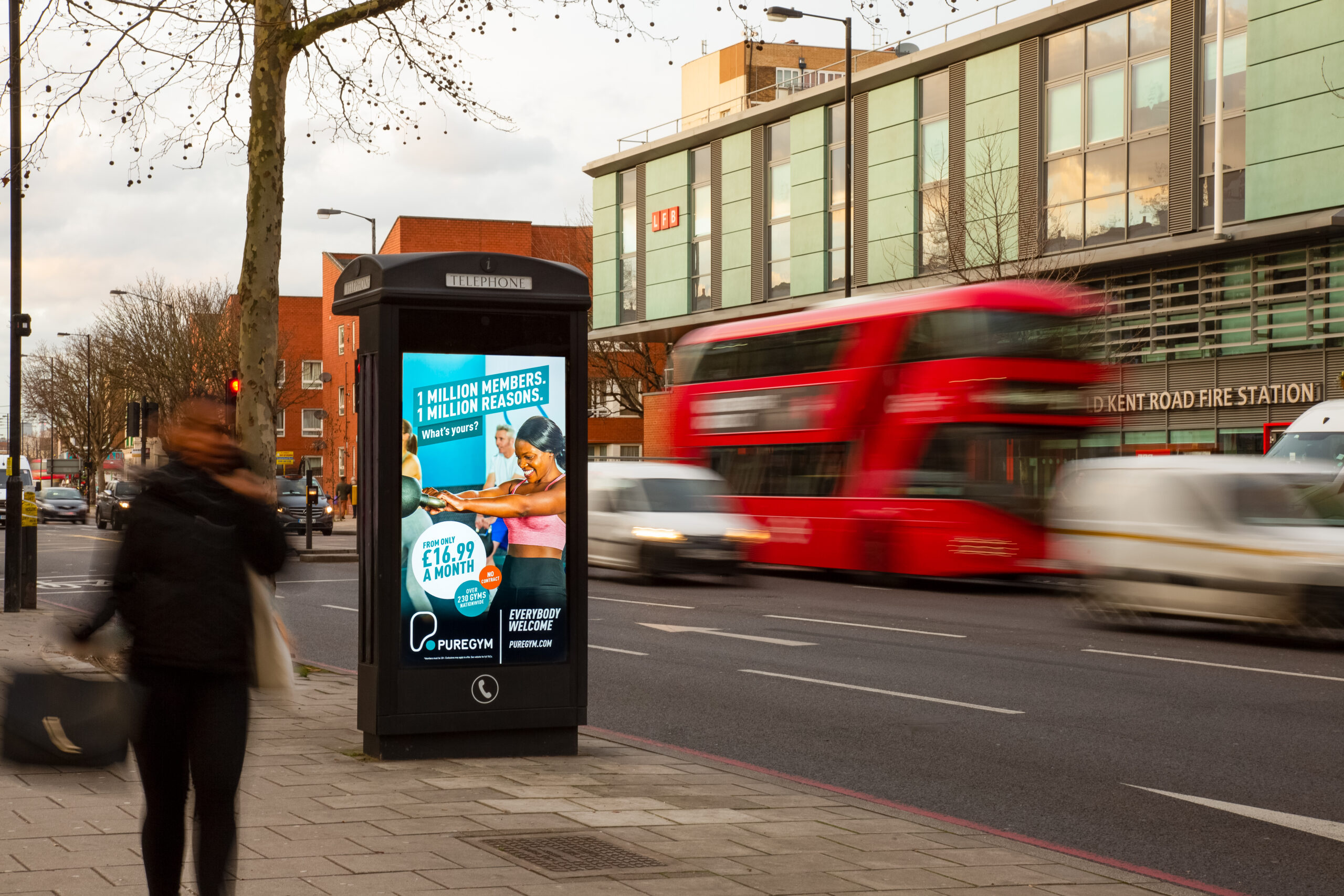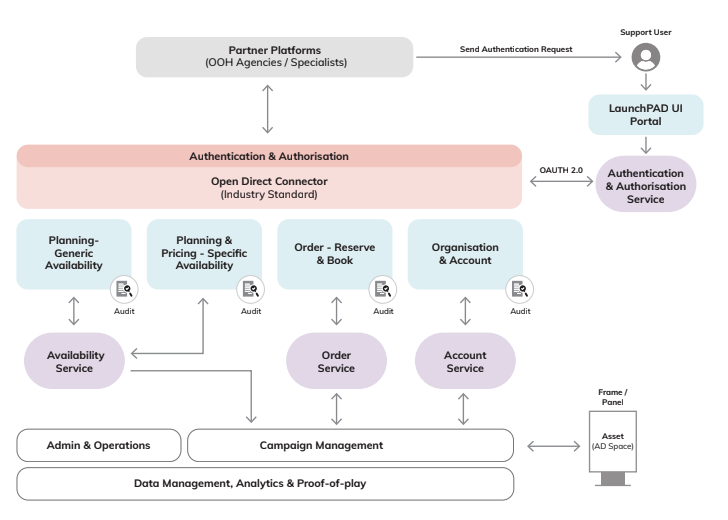Clear Channel automated its campaign booking APIs and reduced its booking failure rate to 0% and the overall processing time from 6 hours to 30 minutes.  US-based Clear Channel Outdoor Holdings, Inc. is a global outdoor advertising company, specialising in Out-Of-Home (OOH) advertising, which involves displaying advertisements in public spaces—primarily outdoors—where they are visible to people as they navigate through the urban environment. These advertisements are placed on various types of media, including billboards, transit locations such as subways, airport advertising, and street furniture like bus shelters and signages. Their digital offerings enable brands to utilise real-time, engaging content across high-tech screens, while their traditional formats allow for large-scale, impactful advertising on printed billboards. The company’s extensive network of prime advertising locations in urban and suburban environments helps businesses reach broad and diverse audiences effectively. The company operates across several geographies, including the UK and Europe, offering a range of both digital and traditional advertising solutions. Clear Channel’s media assets consist of both digital and non-digital frames. Digital frames refer to advertisements displayed on electronic screens, where the content can be dynamic and updated in real-time. Non-digital frames, often referred to as classic or traditional formats, involve static ads printed on materials like paper or vinyl.
US-based Clear Channel Outdoor Holdings, Inc. is a global outdoor advertising company, specialising in Out-Of-Home (OOH) advertising, which involves displaying advertisements in public spaces—primarily outdoors—where they are visible to people as they navigate through the urban environment. These advertisements are placed on various types of media, including billboards, transit locations such as subways, airport advertising, and street furniture like bus shelters and signages. Their digital offerings enable brands to utilise real-time, engaging content across high-tech screens, while their traditional formats allow for large-scale, impactful advertising on printed billboards. The company’s extensive network of prime advertising locations in urban and suburban environments helps businesses reach broad and diverse audiences effectively. The company operates across several geographies, including the UK and Europe, offering a range of both digital and traditional advertising solutions. Clear Channel’s media assets consist of both digital and non-digital frames. Digital frames refer to advertisements displayed on electronic screens, where the content can be dynamic and updated in real-time. Non-digital frames, often referred to as classic or traditional formats, involve static ads printed on materials like paper or vinyl.
The Business Challenge
Clear Channel’s ad campaign booking system is their mainstay in business and it required some fundamental improvements. Their booking APIs, managed by a third-party organisation, were struggling to handle the growing request volumes from their customers, the media agencies. This was inhibiting Clear Channel’s ability to attract new advertising budgets and grow revenue.
Clear Channel collaborated with Sahaj Software due to its extensive experience in software consulting within the advertising industry. Clear Channel leveraged this expertise to involve us in identifying and providing solutions to their current issues. A comprehensive overhaul of the existing infrastructure was required. Clear Channel needed a solution that could not only handle the current volume of requests, but also scale seamlessly with future growth. Moreover, they wanted to regain control over their product experience, which had been compromised due to their reliance on a third-party system.
The Solution
We began Clear Channel’s modernisation project by gradually replacing its legacy system, starting with the automated campaign booking APIs. The step-by-step approach to developing Clear Channel’s solution is detailed as follows:
- Developed a standards-compliant API based on the industry’s OpenDirect specification:
- This allowed Clear Channel to eliminate its reliance on a third party that previously hosted these APIs and regain control over the product’s experience.
- Behind the scenes, we migrated all legacy infrastructure to the OpenDirect API to the latest technologies hosted on AWS and made the switch to the new stack seamless to the end customers.
- This transition was done incrementally using a continuous release process, which involved gradually phasing out the existing system and moving functionalities over through regular updates until the entire migration was complete.
- Enhanced the support process and proactively managed errors:
- To achieve this, we developed a Slack-bot that alerted support engineers in real-time whenever any campaign booking errors occurred, providing specific details about each issue.
- This allowed Clear Channel to address problems before customers noticed them, significantly improving the reliability of support.
- Modernised the ordering process and created a new set of APIs:
- After stabilising Clear Channel’s support team, we focused on modernising the ordering process by creating a new set of APIs by building new services on top of Clear Channel’s existing sales systems.
- We approached this by gradually migrating and replacing components of the current system, and by regularly deploying these changes to production.
- This iterative approach ensured a smooth transition, reduced the risk of major disruptions, and allowed Clear Channel to continuously deliver improvements while keeping the system stable.
- The impact was immediate; for example, Clear Channel reduced the time needed to process ad-frame availability from 6 hours to just 30 minutes.
- Consolidated all inventory data into a single API response:
- We achieved this improvement by upgrading the data extraction and processing infrastructure, and optimising data representation and storage.
- By consolidating all inventory data into a single API response, Clear Channel replaced the previous system where customers had to make multiple paginated requests.
- This consolidation reduced the number of calls, lowered the failure rate, and eliminated issues with missing information, resulting in faster and more reliable data delivery.
- Moved from “big bang” releases to more frequent and reliable deployments:
- We maintained continuous engagement with Clear Channel’s customers and incorporated their feedback to ensure the product being developed met their needs.
- We built this solution with a hybrid team of solution consultants from Sahaj and engineers from Clear Channel.
- We worked with Clear Channel to introduce best practices in development, testing, and release processes, such as unit testing, trunk-based development, and feature toggles.
- These practices enabled Clear Channel to shift from error-prone, “big bang” releases to more frequent and reliable deployments. This approach helped minimise risks, quickly address issues, and ensure a smoother transition throughout the modernization process.

The Impact
The impact of these changes was immediate and Clear Channel saw the following results:
- In the first three months of operation, booking failures dropped to 0%, down from 10% on the old system. This improvement boosted Clear Channel’s revenue, as clients began prioritising its ad inventory for booking campaigns due to increased reliability.
- Parsing frame availability saw a significant performance enhancement, with processing time reduced from 6 hours to 30 minutes. This ensured Clear Channel’s clients always had the most up-to-date data, leading to a 50% increase in successful campaign bookings.
- Operating costs decreased by 60% since Clear Channel hosted the booking APIs on Elastic and serverless AWS instances, eliminating the need to pay a third party for support.
- Time to develop, test, and release features were cut down from months to a regular cadence of 2 weeks or less.



